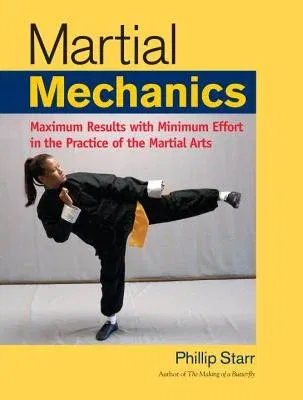Phillip Starr
(Author)Martial Mechanics: Maximum Results with Minimum Effort in the Practice of the Martial ArtsPaperback, 25 March 2008

Qty
1
Turbo
Ships in 2 - 3 days
In Stock
Free Delivery
Cash on Delivery
15 Days
Free Returns
Secure Checkout

Print Length
191 pages
Language
English
Publisher
Blue Snake Books
Date Published
25 Mar 2008
ISBN-10
1583942114
ISBN-13
9781583942116
Description
Product Details
Author:
Book Format:
Paperback
Country of Origin:
US
Date Published:
25 March 2008
Dimensions:
23.37 x
17.78 x
1.27 cm
ISBN-10:
1583942114
ISBN-13:
9781583942116
Language:
English
Location:
Berkeley, CA
Pages:
191
Publisher:
Weight:
412.77 gm